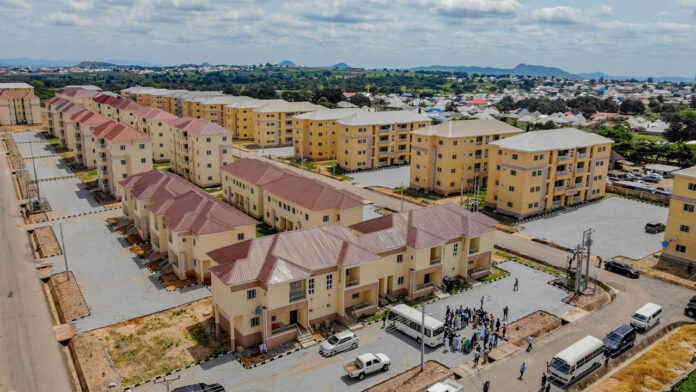The Manager of Aridan Homes and Properties, Mrs Gift Akande, has urged Nigerians to explore mortgage financing to have the house of their dream and bridge the housing deficit.
Akande stated that seeking a mortgage is a better option than taking out shark loans, which can cause undue stress.
She stated this while fielding questions from journalists after an inspection of one of Aridan Homes’ estates, Emerson Parks and Garden, Lala, along the Abeokuta-Sango-Ota Expressway, Ogun State.
According to Akande, as essential as having a shelter could be, it can take a bit of resources and that is why people should go with mortgage financing rather than shark loans that will put them under undue pressure.
“We are also in Abeokuta, Ogun State capital, to assist people with their housing needs, That is why we have structured our payment plans to be so affordable for everyone.
“The truth is that the government cannot do it alone; this is the reason Aridan Homes is out there doing its bit to help bridge the housing deficit and provide quality and affordable housing for Nigerians.
“Many Nigerians want to own a house of their own but their earning capacity is a major problem.”
She remarked that the government needed to improve the minimum wage for the workers, this would help them have more funds to commit to pursuing the housing needs of their choice.
“The mortgage facility should also be recapitalised and strengthened so that people can subscribe to and pay for their property for about 20 to 25 years,” she asserted.
Meanwhile, the Chief Executive Officer of Entrecom Homes and Properties, Sola Ojikutu, highlighted poor remuneration as one major reason hindering many Nigerians from being homeowners.
Ojikutu said it was about time the government increased the minimum wage for the workers because many of them are faced with the challenge of poor salaries, leaving them with little or nothing that they could spend towards embarking on their housing project.
He noted, “Many Nigerian workers are poorly remunerated and this limits what they are left with as disposable income to invest in getting the house of their dreams.”





















